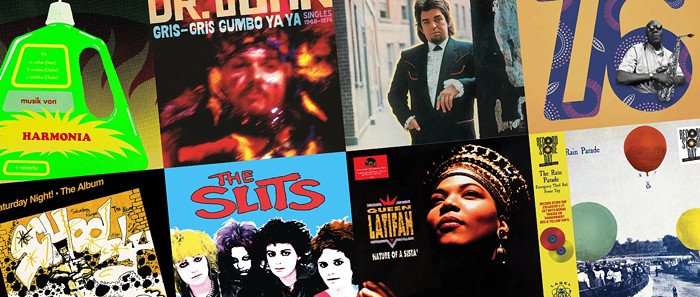Lots of mid-'70s rock is all too enthusiastic about demonstrating its mastery—not so the king and queen of UK folk-rock. Richard Thompson was the former Fairport Convention guitarist-songwriter gone solo, Linda Thompson (formerly Peters) a respected studio singer. The pair married in 1972 and released I Want to See the Bright Lights Tonight two years later. Almost nothing about the album is showy.
These songs are down-to-the-ground, unspectacular. The first line of the title track is "I'm so tired of working every day"; the narrator of the second-to-last song, "End of the Rainbow," spends the tune telling a child, in essence, that there's nothing to look forward to about growing up. The finale, "The Great Valerio," is about a high-wire act, as entertainment and as relationship metaphor. A hunch, but a strong one: No lighters were ever raised and waved to this album.
That may be why it sounds so much fresher 33 years after its release than a lot of the music it shared its time with. The music on Bright Lights is crisp and compact; the simple snap of the snare on the title track is as much what's kept me coming back to this album in recent weeks as Richard's flawless songwriting or Linda's burnished, beautiful voice. (Those things are what draw me in once I'm there.) The devastating "Has He Got a Friend for Me," the haunting "Down Where the Drunkards Roll," the cockeyed-jaunty "When I Get to the Border" and "We Sing Hallelujah"—the Thompsons were not "freak folk," but any album with this many flat-out classics is a little freakish nevertheless.
Bright Lights isn't as (in)famous as the Thompsons' last album together, 1982's lacerating Shoot Out the Lights. That album earns every bit of its rep—it's heavier on Richard's guitar, always a good thing (though "Border" from Bright Lights does contain a wondrous breakout). And Shoot Out the Lights contains some (more) of his most pointed lyrics, not to mention that it has one of the greatest backstories in all of rock: The couple separated following the making of the album, giving its tales of abandoned love a retrospective documentary value; they then toured under acrimonious circumstances, often fighting onstage. There's a reason that the forthcoming 33 1/3 book on the Thompsons is about Shoot, not Bright Lights (the titles' similarities, Richard has said, was not entirely a coincidence). But Bright Lights is more of a thrill, and packs just as hard a wallop.


















